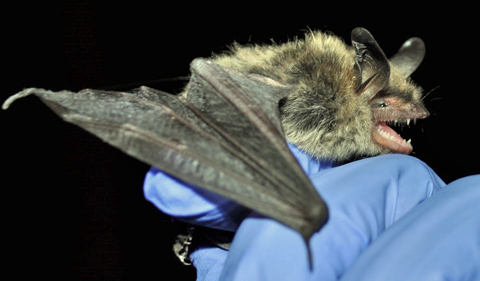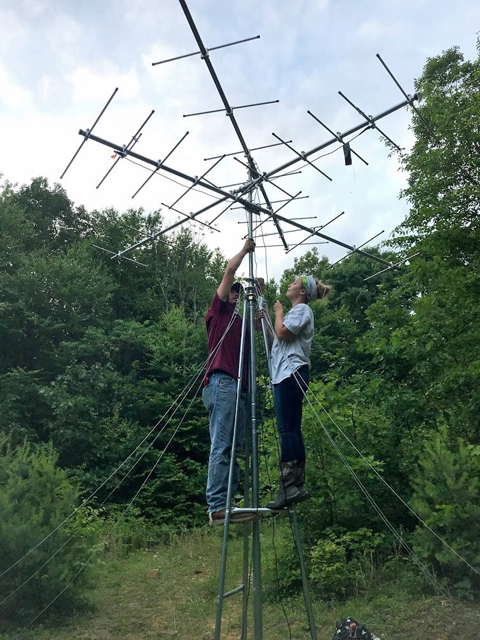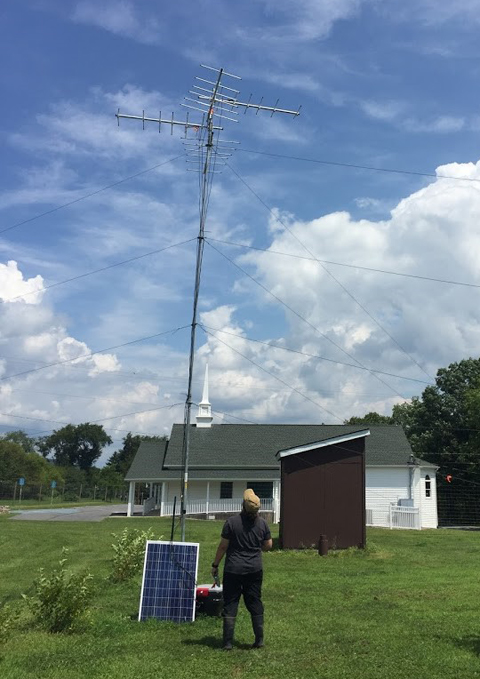
The federally threatened northern myotis (Myotis septentrionalis), one of the species to be studied over the next several years.
Dr. Joseph Johnson and a team of researchers from universities, state agencies, and non-governmental organizations in the eastern United States have been awarded a federal grant to expand the Motus Wildlife Tracking System throughout the region.
Johnson is Assistant Professor of Biological Sciences at Ohio University. Johnson’s lab will be deploying telemetry towers in central Pennsylvania and using the network to track migration of endangered bat species.

Undergraduate students David Spires and Grace Garrity working on their PACE internship building a Motus tower.
The Motus Wildlife Tracking System—which tracks small flying organisms such as birds, bats and large insects—is a collaborative, international research network seeking to uncover patterns in animal migration using digitally encoded radio-transmitters and automated telemetry systems deployed along known and suspected animal migratory routes. Using this technology, researchers on the network cooperatively track each other’s study animals, making it possible to document daily activities during long-distance migrations. Motus is a program of Bird Studies Canada in partnership with Acadia University and collaborating researchers and organizations.
In 2018, Biological Sciences graduate student Mattea Lewis began tracking movements of the federally threatened northern myotis (Myotis septentrionalis). She will expand her efforts to additional species in 2019 with the support of this grant.




















Comments